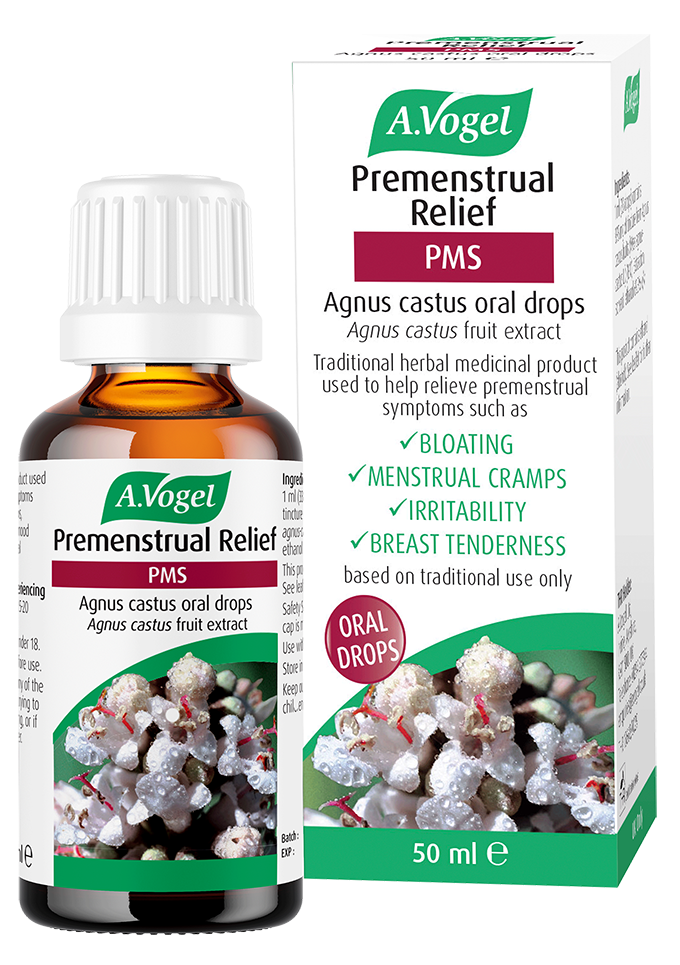The liver plays a big role in hormone balance. Taking simple steps to support your liver can help with period problems, like PMS, premenstrual acne and headaches, heavy periods and more. Support your liver by eating whole foods and bitter foods; limiting processed foods, alcohol and stress; avoiding chemicals; and using herbs like Milk Thistle.
How the Liver Impacts Menstrual Health
The liver, often an unsung hero in discussions about menstrual health, deserves our attention for its multifaceted role in maintaining a healthy menstrual cycle. It serves as the body's metabolic powerhouse, with functions that extend far beyond digestion.
The liver is well known for its role in processing toxins, like those found in alcohol, but also in processed foods and other chemicals we come in contact with, so that they can be excreted from the body. But it also has a similar job processing our hormones. When hormones are produced by different organs, they enter the bloodstream and travel to the liver. Here, the liver acts as a filter, sorting through these hormones, breaking them down, and eliminating any excess or unnecessary ones. It ensures that the right amount of each hormone is available at the right time.
Additionally, the liver modifies these hormones to make them more usable by the body. Just as a recycling plant breaks down materials to reuse them, the liver breaks down hormones so that your body can utilise them efficiently. This process helps maintain a delicate hormonal balance, crucial for your overall health and well-being.
When the liver is under stress or overwhelmed by excessive alcohol consumption, processed foods, or various medications that need processing, its functions may be compromised. This can have a direct impact on our menstrual cycle. Hormonal imbalance is one of the key concerns when the liver is overburdened. This imbalance, stemming from a struggling liver, can lead to irregular periods, heightened premenstrual symptoms, and even heavier menstrual flows.
The liver's capacity to efficiently metabolise and detoxify hormones can be impaired as well, causing a buildup of hormones in the body. This accumulation could worsen mood swings, bloating, and overall discomfort during menstruation. And on top of all of that, an underperforming liver can contribute to increased inflammation in the body, potentially intensifying menstrual pain and discomfort.
When the liver is overloaded, it can trigger a domino effect on our overall well-being, especially just before and during menstruation. The accumulation of toxins due to an overworked liver may find alternative routes for elimination, leading to skin-related issues, such as premenstrual acne. Our skin is our biggest organ of detoxification, and acne can be an external sign that your liver is in need of some more support.
As a naturopath, whenever I have a client dealing with premenstrual symptoms, I always build my treatment protocol around supporting liver health. By addressing the root cause, supporting the liver's detoxification processes and reducing its burden, premenstrual symptoms including acne, bloating, mood swings and more, are often alleviated. This may be part of a bigger protocol, alongside using herbs like Agnus castus, which can ease PMS as well.
Top tip: If you are prone to PMS, check out all the ways you can help your liver to support optimal hormone balance, but you can also try Agnus castus drops.
Ways to Support Your Liver for Menstrual Health:
Supporting your liver can help alleviate a range of PMS symptoms like mood swings, premenstrual acne, bloating, breast tenderness, heavy periods, cramps, and even irregular periods. So, let’s have a look at some simple ways to support your liver and thus support your hormones.
1. Embrace Plant-Based Eating:
Incorporating a predominantly plant-based diet rich in fruits, vegetables, whole grains, nuts, and seeds can significantly benefit liver health. These foods contain various antioxidants, vitamins, and minerals that assist in the detoxification process and support overall liver function. Additionally, certain vegetables like broccoli, Brussels sprouts, and kale from the cruciferous family contain compounds such as sulforaphane that aid the liver in its detoxification role.
2. Reduce Processed Foods and Added Sugars:
Cutting down on processed foods and excessive sugar intake can alleviate stress on the liver. These foods often contain additives, trans fats, and high levels of fructose, which can strain the liver as it works to process them. Opting for whole foods and limiting added sugars can ease the burden on the liver and promote better overall health.
3. Add in some bitter foods
Including bitter foods in your diet can be beneficial for liver health. Bitter-tasting foods such as bitter greens (like rocket, dandelion greens, and kale), bitter melon, citrus pith, and dark chocolate contain natural compounds that stimulate bile production in the liver. Bile plays a crucial role in the digestion and absorption of fats and fat-soluble vitamins, aiding the liver in its detoxification processes. By incorporating these bitter foods into your diet, you can support the liver's function, promoting better digestion and enhancing its ability to process and metabolise and eliminate toxins and hormones from the body.
4. Try herbal remedies
Herbal remedies have a long history of use for supporting liver health. Milk Thistle is one of my favourite herbs for the liver. It contains silymarin, a powerful phytochemical known for its antioxidant and anti-inflammatory properties, which play a key role in supporting liver function. While various herbs help to improve liver function, Milk Thistle is particularly noteworthy for its ability to stimulate the regeneration of liver cells, thereby maintaining optimal liver function. Silymarin's direct impact on liver cells contributes to its protective effect on the liver (1)
Some other herbs that I love using for supporting the liver are dandelion root, gentian, turmeric, and artichoke, and they all work in a slightly different way to Milk Thistle.
- Dandelion root helps to stimulate bile production, aiding in digestion and liver detoxification.
- Gentian is very bitter, which the liver loves!
- Turmeric, with its well-known constituent curcumin, is a great anti-inflammatory and has powerful antioxidant activity, which supports the liver.
- Artichoke can help boost bile production and overall liver function, as well as having a balancing effect on cholesterol.
Blends of herbal bitters offer an excellent way to introduce the bitter taste into your diet and support liver health. Very few of us have enough bitter foods in our diets these days, so trying a blend of herbal bitters, including herbs like gentian, yarrow, dandelion and blessed thistle can really help maximise the liver's efficiency.
5. Stay hydrated:
Hydration is crucial for supporting your liver's detoxification processes. Adequate water intake assists your liver in efficiently flushing out toxins and waste products. It's like giving your body's cleansing system a boost, allowing the liver to work effectively in getting rid of harmful substances. Maintaining proper hydration levels doesn't just support liver health, it's a fundamental part of overall wellbeing and it plays a significant role in ensuring a healthy menstrual cycle. So, sipping on water regularly is a simple yet essential way to keep your liver, and the rest of your body, functioning at its best.
6. Minimise alcohol consumption
Of course, as you likely know, (but may need to hear again anyway!) reducing alcohol intake is vital for liver health. Alcohol can heavily strain the liver and lead to conditions such as fatty liver disease, as well as burdening the liver enough to impact your hormones. Moderating alcohol consumption or abstaining altogether helps alleviate pressure on the liver, enabling it to function optimally and do its important work supporting your hormones and so much more.
To learn about how alcohol consumption can affect your liver check out my blog on the topic - Can alcohol cause pms.
7. Manage Stress:
Chronic stress can strain the liver by triggering the prolonged release of stress hormones like cortisol and adrenaline. This continuous hormonal surge disrupts the liver's functions, leading to increased inflammation and oxidative stress, potentially damaging liver cells. Unhealthy coping mechanisms arising from stress, such as excessive alcohol consumption, poor diet, and lack of sleep, can then further burden the liver. Over time, this chronic stress-induced strain on the liver can contribute to conditions like fatty liver disease and impaired detoxification, both of which make it harder for the liver to help maintain hormone balance.
Chronic stress really does impact every system in our body, so make managing stress a priority. Find whatever stress coping technique works best for you. It doesn’t have to be yoga and meditation (although I love those!). Dancing, gardening, going for a walk in the park or the woods, any exercise really, reading a good book, turning off the news. Whatever it is, find what works for you and let that stress go!
8. Limit Toxins and Chemical Exposure:
Reduce exposure to environmental toxins and chemicals that can burden the liver. Opt for natural cleaning products, organic foods, and filtered water to lower the intake of pesticides and harmful chemicals. Also, be mindful of personal care products and try to choose those containing fewer synthetic chemicals, reducing the load on the liver’s detoxification processes. To learn about how many of these synthetic chemicals contribute to hormone disruption check out my blogs: 7 everyday items that might be making your periods worse and How plastic can harm your hormones
So, while the liver may not be the first organ that comes to mind when discussing menstrual health, its significance cannot be understated. A healthy liver ensures hormonal balance, detoxifies the body, plays a critical role in nutrient metabolism and so much more. By taking care of your liver through a balanced diet, proper hydration, stress management, minimising exposure to toxins, along with the support of herbal remedies, you can help safeguard your overall well-being, including your menstrual health. It's time to give this unsung hero the recognition it deserves in the journey to better menstrual health.






 Looking for our products in a store near you?
Looking for our products in a store near you?

